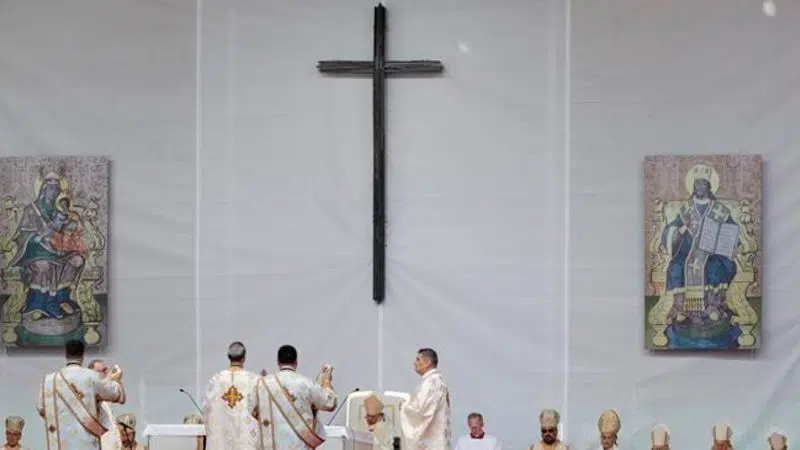
Pope apologizes for history of discrimination against Roma
BLAJ, Romania — Pope Francis apologized Sunday to the Roma ethnic minority for their history of discrimination in Europe and paid homage to Romanian Catholics persecuted during communist rule as he wrapped up his third and final day with a message of forgiveness.
Francis reached out to the minorities of Transylvania during a deeply symbolic visit to Romania about 20 years after St. John Paul II made the first-ever papal trip to the majority Orthodox country.
In his final stop Sunday before heading back to the Vatican, Francis visited a community of Roma, also known as Gypsies, in a newly built Catholic church that was so small organizers asked the clergy to leave to make more room for Gypsy families to get in.
